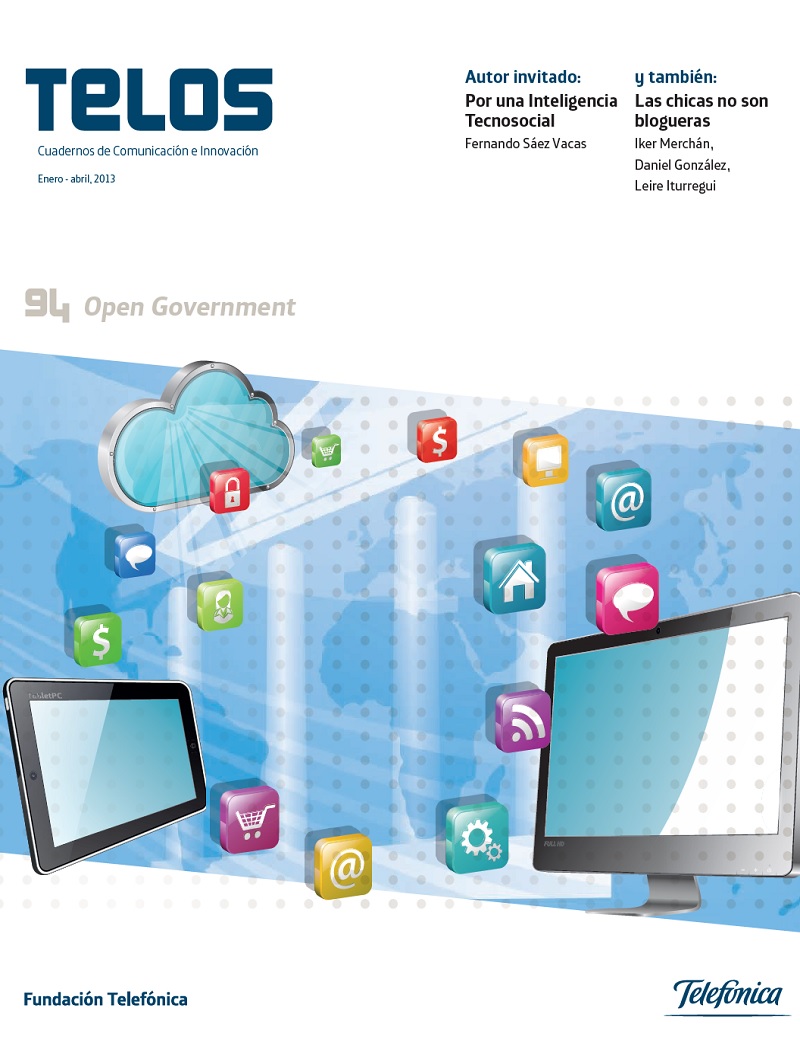
TELOS 94
The dossier of this issue of Telos tackles a subject of great importance: Open Government, which the economic crisis has not only failed to push out, but quite the opposite. As stated in the introduction to the call for papers by Telos, governmental initiatives, and also and above all social movements, have been responsible for unleashing the reflection and discussion on its implementation.
The concept of Open Government has been recently popularised both by governmental initiatives and –especially– by the citizens' movements and the intellectual and academic reflection and analysis required for its introduction. But its popularisation has also increased the assortment of definitions and the ambiguity of the term itself, to the extent that it overlaps at times with other concepts such as Electronic Government, efficient government, transparency and so on, confusing the ends with the means, channels or practices. As the contributions in this dossier show, transparency and accountability are necessary elements for Open Government, but are only one part of what this concept can imply politically and socially.
Juan Freire, a member of the Telos Scientific Board, university lecturer (Universidad de La Coruña) and renowned expert in Digital innovation projects, was responsible for coordinating this article. All of the anonymously evaluated texts and specialist editorials are representative of this issue, which, in our call, acknowledged the vital role of the Internet and digital culture in raising awareness of the need for Open Government.
However, they also emphasised that the predominance of the right to access information, cooperation and transparency that was founded on the Internet required other indispensable factors, such as appropriate legal regulation, a new awareness on the part of the institutions and their managers and strong public involvement.